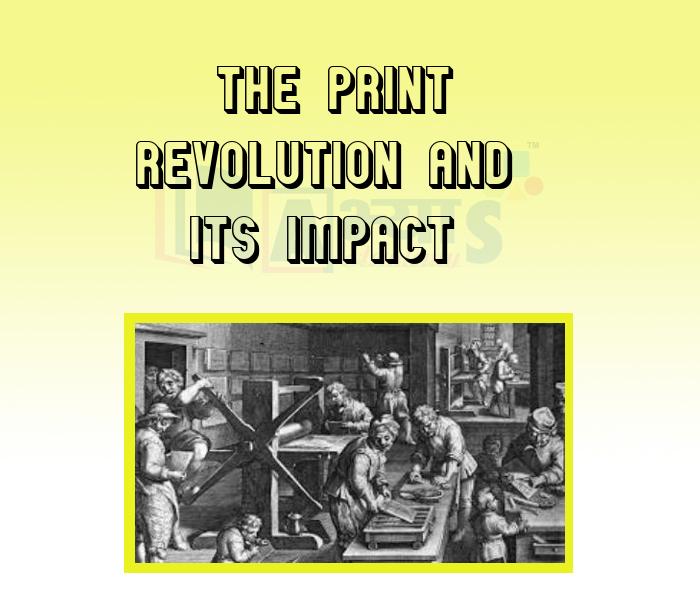The print revolution and its impact













The print revolution and its impact
The print revolution and its impact: The print revolution was not just a new way of producing books; it transformed the lives of people, changing their relationship to information and knowledge and with institutions and authorities.
A New Reading Public: With the printing press, a new reading public emerged, as printing reduced the cost of books. Access to books created a new culture of reading.
Earlier reading was restricted to the elites. Common people lived in a world of oral culture. They heard sacred texts read ballads recited and folk tales narrated. Now, books could reach out to wider sections of people.
But the transition was not so simple . Books could be read only by the literate and the rates of literacy in most European countries were very low till twentieth century.
People Who Enjoy Listening to Books: There was a large number of people who could not read, but could listening to books being read out. To satisfy their needs, printers began publishing popular ballads and folk tales with lots of pictures. These were then sung and recited at gatherings in villages and in taverns in towns. Thus, oral culture entered print and printed material was orally transmitted. The hearing public and the reading public became mixed together.
Religious Debates and the Fear of Print: Innovation of printing culture created the possibility of wide circulation of ideas and introduced a new world of debate and discussion. Even those who disagreed with established authorities could now print and circulate their ideas. From the printed message, they could explain people to think differently and move them to action. But printed books were not welcomed by everyone. It was feared that if there was no control over what was printed and read, then rebellious ideas might spread. If that happened, the authority of ‘valuable’ literature would be destroyed. This anxiety was expressed by the religious authorities, monarchs, writers and artists.
Ballad :- A historical account or folk tale in verse , poem or song usually sung or recited .
Taverns :- Places where people gathered to drink alocohol , to be served food and to meet friends and exchange news .
Students / Parents Reviews [10]
My experience with Abhyas academy is very good. I did not think that my every subject coming here will be so strong. The main thing is that the online tests had made me learn here more things.

Hiya Gupta
8thOne of the best institutes to develope a child interest in studies.Provides SST and English knowledge also unlike other institutes. Teachers are co operative and friendly online tests andPPT develope practical knowledge also.

Aman Kumar Shrivastava
10thAbout Abhyas metholodology the teachers are very nice and hardworking toward students.The Centre Head Mrs Anu Sethi is also a brilliant teacher.Abhyas has taught me how to overcome problems and has always taken my doubts and suppoeted me.

Shreya Shrivastava
8thI have spent a wonderful time in Abhyas academy. It has made my reasoning more apt, English more stronger and Maths an interesting subject for me. It has given me a habbit of self studying

Yatharthi Sharma
10thAbhyas Methodology is very good. It is based on according to student and each child manages accordingly to its properly. Methodology has improved the abilities of students to shine them in future.

Manish Kumar
10thAbhyas is a complete education Institute. Here extreme care is taken by teacher with the help of regular exam. Extra classes also conducted by the institute, if the student is weak.

Om Umang
10thA marvelous experience with Abhyas. I am glad to share that my ward has achieved more than enough at the Ambala ABHYAS centre. Years have passed on and more and more he has gained. May the centre flourish and develop day by day by the grace of God.

Archit Segal
7thBeing a parent, I saw my daughter improvement in her studies by seeing a good result in all day to day compititive exam TMO, NSO, IEO etc and as well as studies. I have got a fruitful result from my daughter.

Prisha Gupta
8thIt has a great methodology. Students here can get analysis to their test quickly.We can learn easily through PPTs and the testing methods are good. We know that where we have to practice

Barkha Arora
10thMy experience with Abhyas is very good. I have learnt many things here like vedic maths and reasoning also. Teachers here first take our doubts and then there are assignments to verify our weak points.
